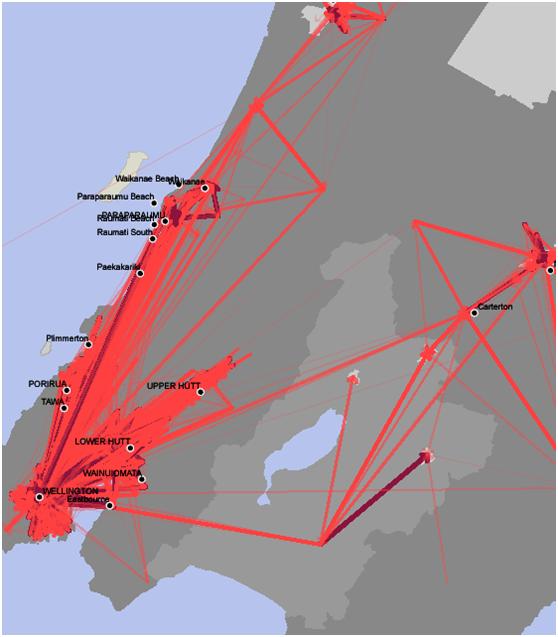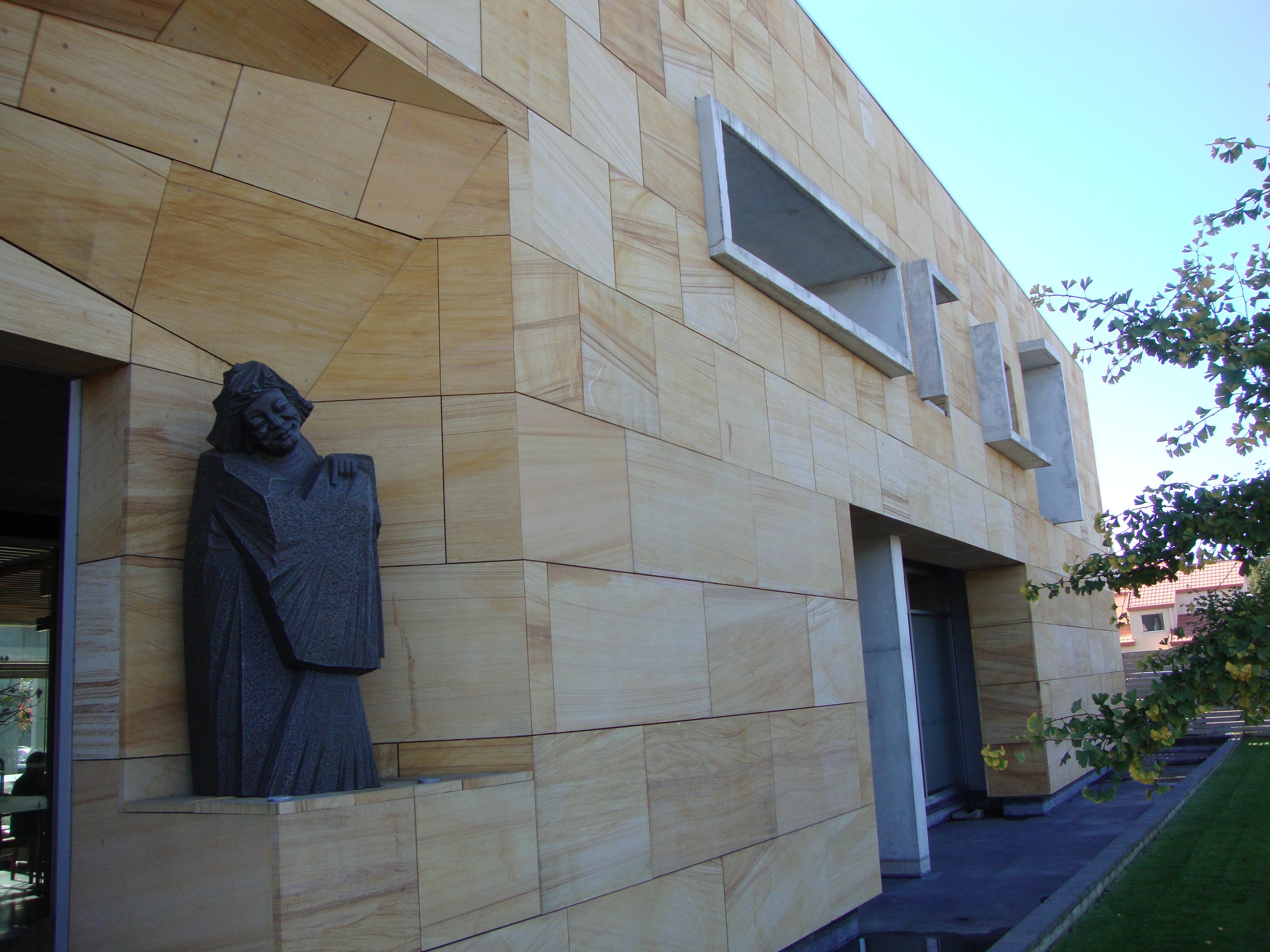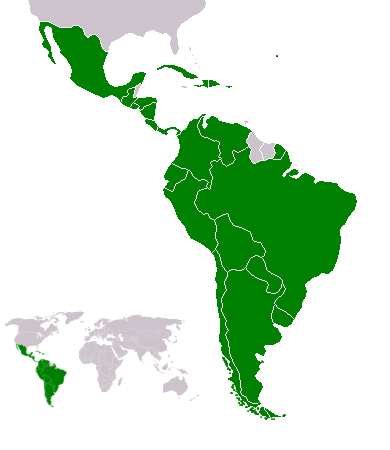|
NewZealand
New Zealand ( mi, Aotearoa ) is an island country in the southwestern Pacific Ocean. It consists of two main landmasses—the North Island () and the South Island ()—and over 700 List of islands of New Zealand, smaller islands. It is the List of island countries, sixth-largest island country by area, covering . New Zealand is about east of Australia across the Tasman Sea and south of the islands of New Caledonia, Fiji, and Tonga. The country's varied topography and sharp mountain peaks, including the Southern Alps, owe much to tectonic uplift and volcanic eruptions. New Zealand's Capital of New Zealand, capital city is Wellington, and its most populous city is Auckland. The islands of New Zealand were the last large habitable land to be settled by humans. Between about 1280 and 1350, Polynesians began to settle in the islands and then developed a distinctive Māori culture. In 1642, the Dutch explorer Abel Tasman became the first European to sight and record New Zealand. ... [...More Info...] [...Related Items...] OR: [Wikipedia] [Google] [Baidu] |
New Zealanders
New Zealanders ( mi, Tāngata Aotearoa), colloquially known as Kiwis (), are people associated with New Zealand, sharing a common history, culture, and language (New Zealand English). People of various ethnicities and national origins are citizens of New Zealand, governed by its nationality law. Originally composed solely of the indigenous Māori, the ethnic makeup of the population has been dominated since the 19th century by New Zealanders of European descent, mainly of English, Scottish, Welsh and Irish ancestry, with smaller percentages of other European and Middle Eastern ancestries such as Greek, Turkish, Italian, Lebanese and other Arab, German, Dutch, Scandinavian, South Slavic and Jewish, with Western European groups predominating. Today, the ethnic makeup of the New Zealand population is undergoing a process of change, with new waves of immigration, higher birth rates and increasing interracial marriage resulting in the New Zealand population of Māori, Asian, ... [...More Info...] [...Related Items...] OR: [Wikipedia] [Google] [Baidu] |
Auckland
Auckland (pronounced ) ( mi, Tāmaki Makaurau) is a large metropolitan city in the North Island of New Zealand. The List of New Zealand urban areas by population, most populous urban area in the country and the List of cities in Oceania by population, fifth largest city in Oceania, Auckland has an urban population of about It is located in the greater Auckland Region—the area governed by Auckland Council—which includes outlying rural areas and the islands of the Hauraki Gulf, and which has a total population of . While European New Zealanders, Europeans continue to make up the plurality of Auckland's population, the city became multicultural and Cosmopolitanism, cosmopolitan in the late-20th century, with Asian New Zealanders, Asians accounting for 31% of the city's population in 2018. Auckland has the fourth largest Foreign born, foreign-born population in the world, with 39% of its residents born overseas. With its large population of Pasifika New Zealanders, the city is ... [...More Info...] [...Related Items...] OR: [Wikipedia] [Google] [Baidu] |
African New Zealanders
African New Zealanders are New Zealanders of African descent. They represent less than 0.3% of New Zealand's population, although the number has been growing substantially since the 1990s. Notable African New Zealanders * Addil Somani (born 1967), Ugandan-born cricketer * Alan Blake (1922–2010), rugby player of African-American descent * David Nyika (born 1995), boxer of Ugandan descent * Devon Conway born 1990, cricketer playing for New zealand * Gus Nketia (born 1970), Ghanaian-born track and field athlete * Ibrahim Omer (born 1979), Eritrean-born Member of Parliament for the Labour Party. * Israel Adesanya (born 1989), Nigerian-born mixed martial artist * John da Silva (1934–2021), wrestler of Brazilian descent * Lesley-Anne Brandt (born 1981), South African-born actress * Mazbou Q (born 1989), UK-born New Zealand-based Nigerian hip hop artist * Meryl Cassie (born 1984), South African-born actress * Nneka Okpala (born 1988), athlete of Nigerian descent * Precious McKe ... [...More Info...] [...Related Items...] OR: [Wikipedia] [Google] [Baidu] |
European New Zealanders
European New Zealanders, also known by the Māori-language loanword Pākehā, are New Zealanders of European descent. Most European New Zealanders are of British and Irish ancestry, with significantly smaller percentages of other European ancestries such as Germans, Poles (historically noted as German due to Partitions of Poland), French, Dutch, Croats and other South Slavs, Greeks, and Scandinavians. Statistics New Zealand maintains the national classification standard for ethnicity. ''European'' is one of the six top-level ethnic groups, alongside Māori, Pacific ( Pasifika), Asian, Middle Eastern/Latin American/African (MELAA), and Other. Within the top-level European group are two second-level ethnic groups, ''New Zealand European'' and ''Other European''. New Zealand European consists of New Zealanders of European descent, while Other European consists of migrant European ethnic groups. Other Europeans also includes some people of indirect European descent, including A ... [...More Info...] [...Related Items...] OR: [Wikipedia] [Google] [Baidu] |
Statistics New Zealand
Statistics New Zealand ( mi, Tatauranga Aotearoa), branded as Stats NZ, is the public service department of New Zealand charged with the collection of statistics related to the economy, population and society of New Zealand. To this end, Stats NZ produces censuses and surveys. Organisation Statistics New Zealand employs people with a variety of skills, including statisticians, mathematicians, computer science specialists, accountants, economists, demographers, sociologists, geographers, social psychologists, and marketers. There are seven organisational subgroups each managed by a Deputy Government Statistician: * Macro-economic and Environment Statistics studies prices, national accounts, develops macro-economic statistics, does government and international accounts, and ANZSIC 06 implementation (facilitating changeover to new classification code developed jointly with Australian statistics officials.) * Social and Population Statistics studies population, social conditions, ... [...More Info...] [...Related Items...] OR: [Wikipedia] [Google] [Baidu] |
Religion In New Zealand
Religion in New Zealand encompasses a wide range of groups and beliefs. Almost half (48.6 percent) of New Zealanders stated they had no religion in the 2018 census and 6.7 percent made no declaration. However, Christianity remains the most common religion; 37.3 percent of the population at the 2018 census identified as Christian, with Anglicanism being the largest denomination. Around six percent of the population is affiliated with non-Christian religions. Hinduism is the second-most popular religion, claiming 2.7 percent of the population, and Sikhism is the fastest-growing faith. Before European colonisation the religion of the indigenous Māori population was polytheistic and animistic. The first Christian service in New Zealand waters was conducted by a French priest, Paul-Antoine Léonard de Villefeix, on Christmas Day 1769. The first Christian service on land was led by Rev. Samuel Marsden on Christmas Day 1814. Subsequent efforts of missionaries and the ... [...More Info...] [...Related Items...] OR: [Wikipedia] [Google] [Baidu] |
Islam In New Zealand
Islam in New Zealand is a religious affiliation representing about 1.3% of the total population. Small numbers of Muslim immigrants from South Asia and eastern Europe settled in New Zealand from the early 1900s until the 1960s. Large-scale Muslim immigration began in the 1970s with the arrival of Fiji Indians, followed in the 1990s by refugees from various war-torn countries. The first Islamic centre in New Zealand opened in 1959 and there are now several mosques and two Islamic schools. The majority of Muslims in New Zealand are Sunni, with significant Shia and Ahmadiyya minorities. The Ahmadiyya Community has translated the Qur'an into the Māori language. History Early migration, 19th century The earliest Muslim presence in New Zealand dates back to the late 19th century. The first Muslims in New Zealand were an Indian family who settled in Cashmere, Christchurch, in the 1850s. The 1874 government census reported 15 Chinese Muslim gold diggers working in the Dunstan gold ... [...More Info...] [...Related Items...] OR: [Wikipedia] [Google] [Baidu] |
Māori People
The Māori (, ) are the indigenous Polynesian people of mainland New Zealand (). Māori originated with settlers from East Polynesia, who arrived in New Zealand in several waves of canoe voyages between roughly 1320 and 1350. Over several centuries in isolation, these settlers developed their own distinctive culture, whose language, mythology, crafts, and performing arts evolved independently from those of other eastern Polynesian cultures. Some early Māori moved to the Chatham Islands, where their descendants became New Zealand's other indigenous Polynesian ethnic group, the Moriori. Initial contact between Māori and Europeans, starting in the 18th century, ranged from beneficial trade to lethal violence; Māori actively adopted many technologies from the newcomers. With the signing of the Treaty of Waitangi in 1840, the two cultures coexisted for a generation. Rising tensions over disputed land sales led to conflict in the 1860s, and massive land confiscations, to which ... [...More Info...] [...Related Items...] OR: [Wikipedia] [Google] [Baidu] |
Kiwi (nickname)
"Kiwi" ( ) is a common self-reference used by New Zealanders, though it is also used internationally. Unlike many demographic labels, its usage is not considered offensive; rather, it is generally viewed as a symbol of pride and affection for most people of New Zealand. The name derives from the kiwi, a native flightless bird, which is a national symbol of New Zealand. Until the First World War, the kiwi represented the country and not the people; however, by 1917, New Zealanders were also being called "Kiwis", supplanting other nicknames such as "Enzedder". History The kiwi has long had a special significance for the indigenous Māori people, who used its skin to make feather cloaks () for chiefs. The bird first came to European attention in 1811 when a skin ended up in the hands of a British Museum zoologist, George Shaw, who classified it as a type of penguin and portrayed it as standing upright. After early sightings by Europeans the kiwi was regarded as a curiosity; in 18 ... [...More Info...] [...Related Items...] OR: [Wikipedia] [Google] [Baidu] |
Buddhism In New Zealand
Buddhism is New Zealand's third-largest Religion in New Zealand, religion after Christianity in New Zealand, Christianity and Hinduism in New Zealand, Hinduism standing at 1.5% of the population of New Zealand. Buddhism originates in Asia and was introduced to New Zealand by immigrants from East Asia. History The first Buddhists in New Zealand were Chinese diggers in the Otago goldfields in the 1860s. Their numbers were small, and the 1926 census, the first to include Buddhism, recorded only 169. In the 1970s travel to Asian countries and visits by Buddhist teachers sparked an interest in the religious traditions of Asia, and significant numbers of New Zealanders adopted Buddhist practices and teachings. Since the 1980s Asian migrants and refugees have established their varied forms of Buddhism in New Zealand. In the 2010s more than 50 groups, mostly in the Auckland region, offered different Buddhist traditions at temples, centres, monasteries and retreat centres. Many migrant c ... [...More Info...] [...Related Items...] OR: [Wikipedia] [Google] [Baidu] |
Hinduism In New Zealand
Hinduism is the second largest religion in New Zealand. It is also one of the fastest-growing religions in New Zealand. According to the 2018 census, Hindus form 2.65% of the population of New Zealand. There are about 123,534 Hindus in New Zealand. Hindus from all over India continue to immigrate today, with the largest Indian ethnic subgroup being Gujaratis. A later wave of immigrants also includes Hindu immigrants who were of Indian descent from nations that were historically under European colonial rule, such as Fiji. Today there are Hindu temples in all major New Zealand cities. History Early settlement In 1836 the missionary William Colenso saw Māori women near Whangarei using a broken bronze bell to boil potatoes. The inscription is in very old Tamil script. This discovery has led to speculation that Tamil-speaking Hindus may have visited New Zealand hundreds of years ago. However, the first noted settlement of Hindus in New Zealand dates back to the arrival of sep ... [...More Info...] [...Related Items...] OR: [Wikipedia] [Google] [Baidu] |
Latin Americans
Latin Americans ( es, Latinoamericanos; pt, Latino-americanos; ) are the citizens of Latin American countries (or people with cultural, ancestral or national origins in Latin America). Latin American countries and their diasporas are multi-ethnic and multi-racial. Latin Americans are a pan-ethnicity consisting of people of different ethnic and national backgrounds. As a result, some Latin Americans do not take their nationality as an ethnicity, but identify themselves with a combination of their nationality, ethnicity and their ancestral origins. Aside from the Indigenous Amerindian population, all Latin Americans have some Old World ancestors who arrived since 1492. Latin America has the largest diasporas of Spaniards, Portuguese, Africans, Italians, Lebanese and Japanese in the world. The region also has large German (second largest after the United States), French, Palestinian (largest outside the Arab states), Chinese and Jewish diasporas. The specific ethnic and/or racia ... [...More Info...] [...Related Items...] OR: [Wikipedia] [Google] [Baidu] |

_p225_AUCKLAND%2C_NEW_ZEALAND.jpg)





